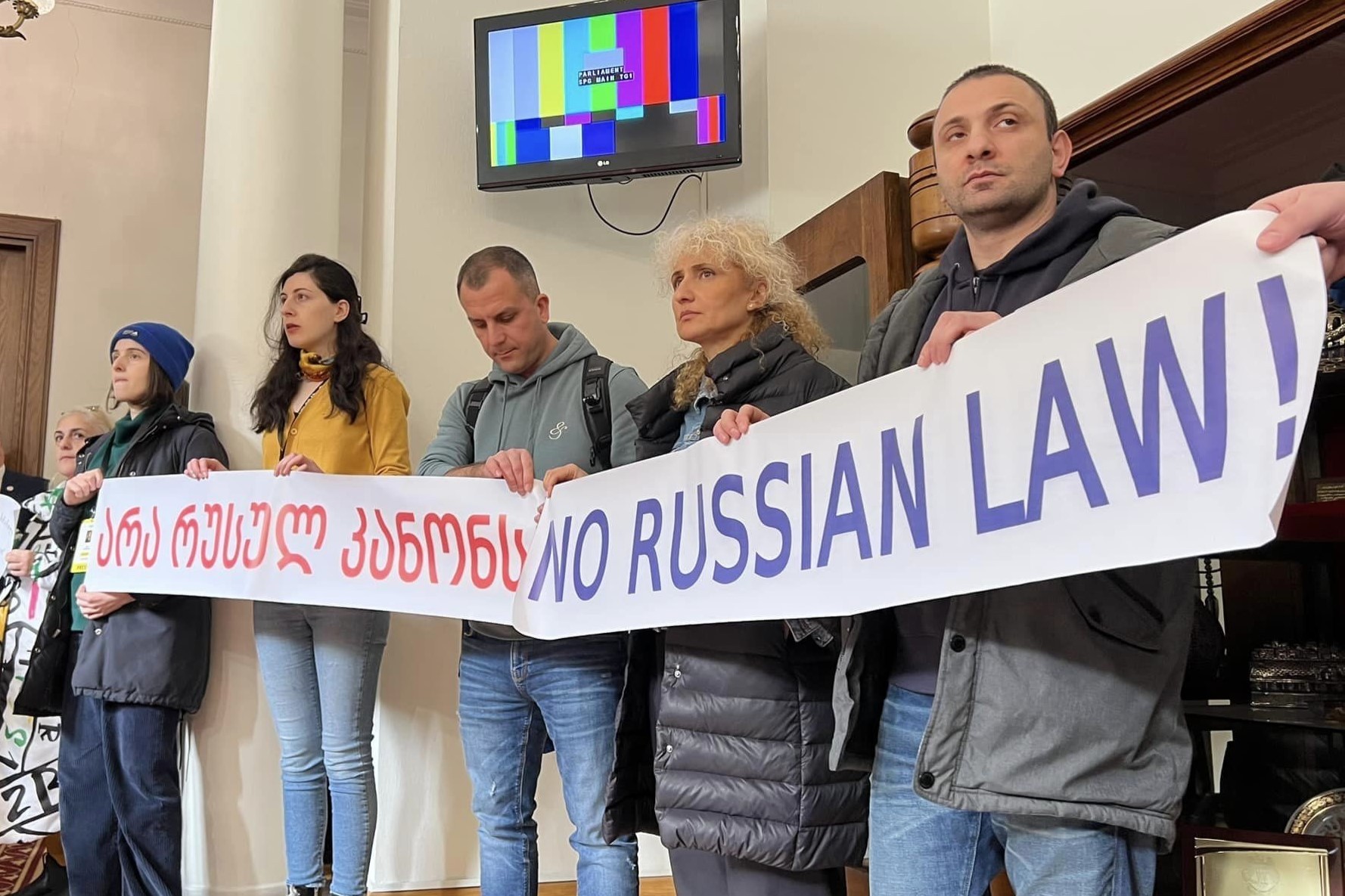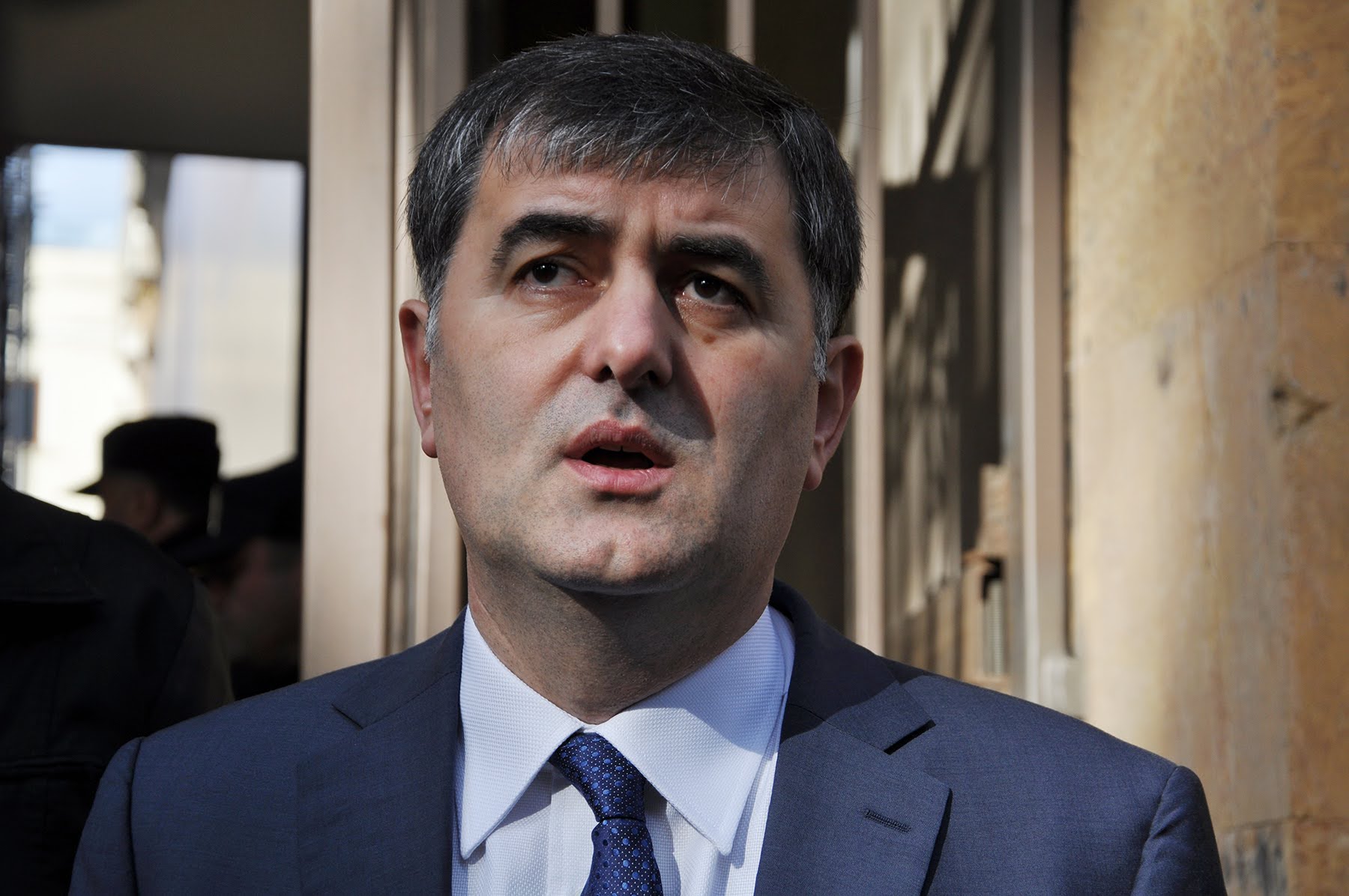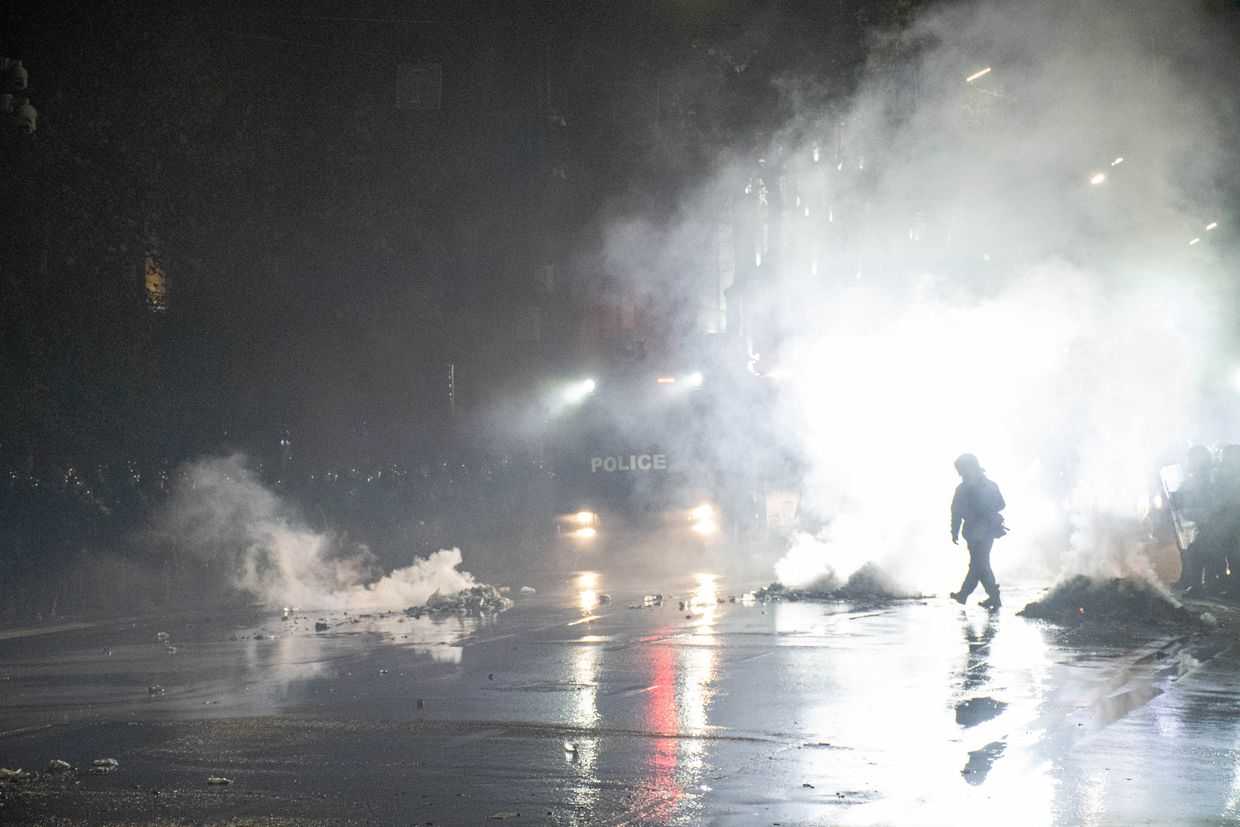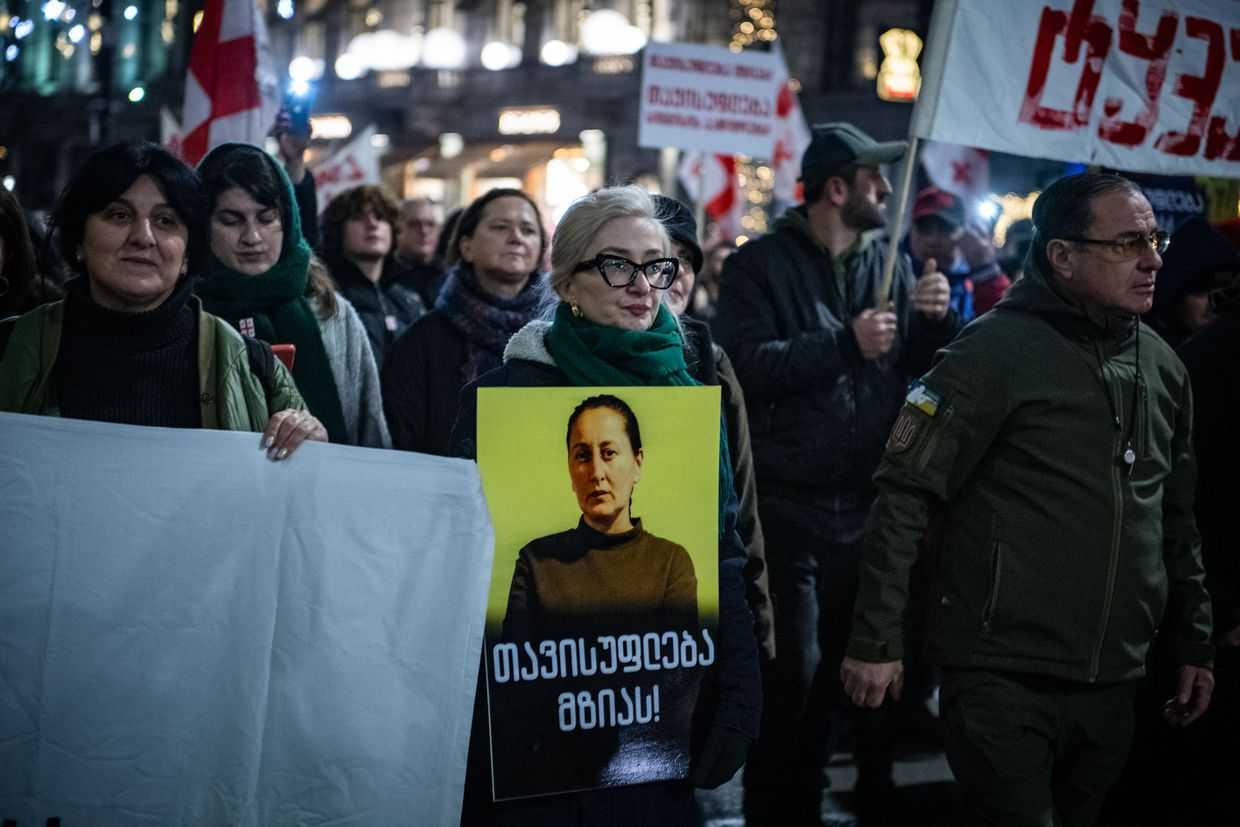
A group of Georgian journalists protested the registration of the law on ‘agents of foreign influence’ in parliament today, while President Zurabishvili suggested that she might veto the legislation.
The draft law, which was today approved by the Parliamentary Bureau for further discussions, would mark all non-governmental organisations and media outlets that receive more than 20% of their funding from foreign sources as ‘foreign agents’.
The gathered journalists held signs and banners inscribed with ‘No to Putin’s law’, ‘You can’t silence us’, and ‘Russian law is not Georgia’s choice’, in reference to fears that the legislation was modelled on Russia’s foreign agent law.
Since its adoption in 2012, the scope and punitive use of the Russian law has expanded. It has been used to quash domestic dissent by cracking down on local independent media and rights groups.
[Read more on OC Media: Foreign agent law to be submitted to Georgian Parliament]
The law was tabled last week by People’s Power, a non-formal pro-government group of MPs that left the ruling Georgian Dream party in August 2022, and have since been outspoken in their criticism of the West.
People’s Power have, however, remained a part of the parliamentary majority, and leading members of Georgian Dream have spoken in the law’s defence in recent days.
Hours after parliament registered the draft law, Georgian President Salome Zurabishvili released a statement suggesting that she might veto it.
She noted that the legislation threatened to derail Georgia’s ‘European future’, instead bringing Georgia ‘closer to the vicious model of Russia’.
‘The President of Georgia cannot support such legislation’, the statement read.
‘Going against the will of the people of Georgia’
Since its announcement on 14 February, the law has prompted a wave of criticism and concern from local and international actors, many of whom have warned of a serious threat to Georgia’s civil society and media freedom.
Georgia’s Public Defender’s office stated on Friday that the law did not comply with international or domestic human rights standards, describing it as ‘incompatible with the basic principles of a modern democratic state’.
Speaking to OC Media, German MEP Viola von Cramon warned that the legislation contributed to the ‘building of Putin-type rule in Georgia’.
‘We see […] how the Russian brand of governing a country is systematically implemented in Georgia while the country is straying away from the path of EU integration. This goes against the will of the people of Georgia.’
‘The ruling party and their proxies are fully invested in smearing the EU and are borrowing tricks from Putin’s, Lukashenko’s, and Orban’s playbook’, said von Cramon.
The draft law “On Transparency of Foreign Influence” that was tabled by the People’s Power Faction raises several concerns with regard to its compatibility with democratic and Human Rights standards, said PACE rapporteurs on Georgia @claude_kern and @editeestrela.
— PACE (@PACE_News) February 16, 2023
On 16 February, the US State Department joined in warning that ‘such a law could potentially undermine Georgia’s Euro-Atlantic integration’, and that the law would threaten freedom of speech and democracy in Georgia.
Independent news outlet Netgazeti warned that the Russian law had ‘effectively eliminated critical media and civil society’, claiming that the law would be used against media and civil society organisations that were critical of the government.
Despite the claim that People’s Power are independent of the ruling party, leaders from Georgian Dream have consistently spoken in defence of the proposed law.
Copying from Putin’s playbook
Critics of the draft law on ‘transparency of foreign influence’ have pointed out the similarities between arguments used by the legislation’s authors and its supporters from the ruling party, and those that Russian President Vladimir Putin has used to justify Russia’s law.
People’s Power MPs have claimed that the draft law was modeled on America’s Foreign Agents Registration Act (FARA), a claim which Putin similarly made in 2021 regarding Russia’s law.
On Thursday, the spokesperson for the US State Department disputed the assertion, stating that Georgia’s draft legislation appeared to be based on ‘similar Russian and Hungarian legislation’, rather than any American laws.

Both People’s Power MP Mikheil Kavelashvili and Georgian Dream Chair Irakli Kobakhidze also echoed the Russian president when claiming that Georgia’s law was more lenient than that of the US, and only intended to strengthen financial transparency.
‘Compared to European legislature, American law is much harsher. We have softened it’, claimed Kobakhidze. The party chair did not clarify who ‘we’ referred to.
Kobakhidze also closely mirrored the Russian President in arguing that the term ‘agent’ should not be seen as pejorative.
‘You can’t, in fact, protest this term because there are “agents” like insurance agents’, said the party chair on 15 February. ‘This is an accepted term.’
In 2012, Putin similarly stated that ‘Insurance business have insurance agents; so what? […] Should we now cancel this concept?’









